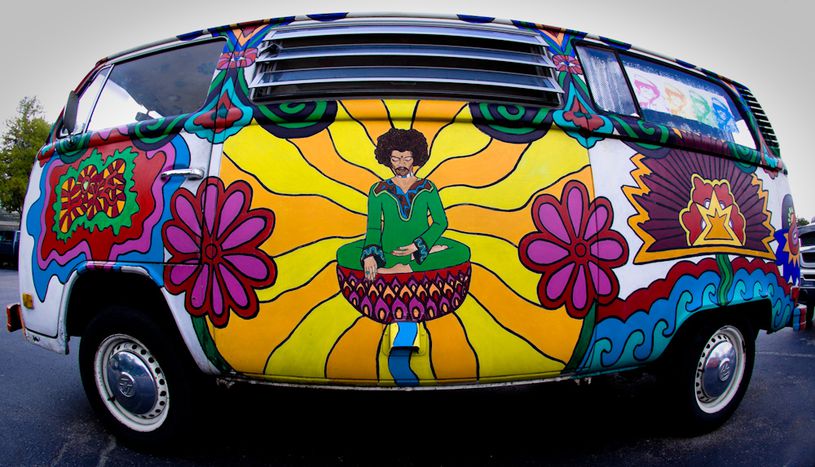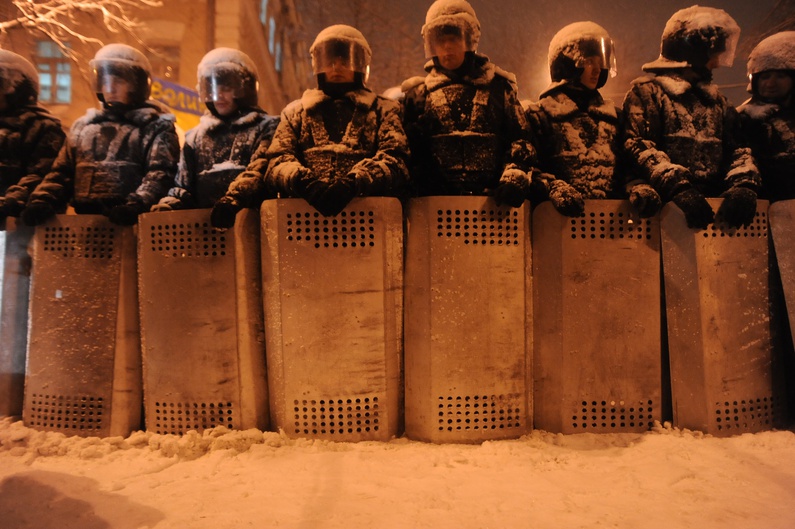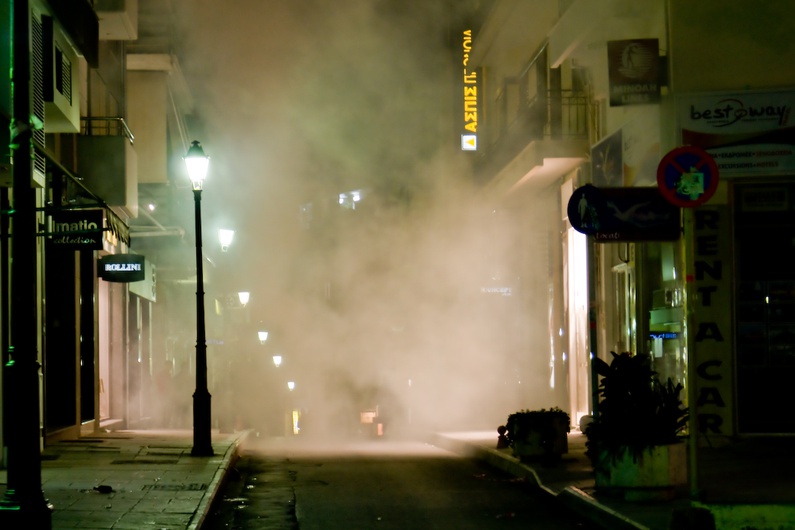
Europe needs a peaceful revolution
Published on
|Opinion| The European Elections are just two months away. Europe is still in crisis and people are getting all the more agitated, exasperated, and distrustful. Why do we need to vote for an EU which so has so evidently failed not only to foresee and prepare for the biggest crisis since the Great Depression, but also to adequately manage and confront it?
“Politicians have a tendency to leave all difficult decisions for later,” says Professor of European Integration at the University of Athens and President of the Hellenic Foundation for European and Foreign Policy (ELIAMEP) Loukas Tsoukalis.
Very ugly Russian dolls
He describes the economic crisis as a series of very ugly Russian dolls – the big one is the international banking bubble which burst in 2008 due to market failure; then comes the EU crisis which demonstrated the dangers of having a common currency without the relevant institutions to support it; and then come the national fiscal problems faced by member states, exacerbated by the year-long borrowing from banks. Now the party is over, says Tsoukalis, but who will pay the bill? These national crises have now become an inseparable part of a systemic crisis of the Euro.
 There have been mistakes and errors both on the national and the European front. The EU has lost an entire decade due to the banking bubble, and, as Tsoukalis reiterates, we would be lucky to have returned to 2007 growth and GDP levels by 2016.
There have been mistakes and errors both on the national and the European front. The EU has lost an entire decade due to the banking bubble, and, as Tsoukalis reiterates, we would be lucky to have returned to 2007 growth and GDP levels by 2016.
The EU underestimated the consequences of fiscal adjustment and the divisions it would cause between member states. And the fact that it would drag on for such prolonged periods.
on the verge of a nervous breakdown
Greece alone has lost one third of its living standards in the three years it has been subjected to tough austerity measures (2009-2012) and it now ranks among the worst EU performers in salary imbalances, satisfaction with life and suicide rates. Unemployment rates are still unacceptably high and this is a severe obstacle to growth and development. No matter how good the situation of member states pre-crisis, pretty much the whole of the Eurozone is now suffering the consequences of mismanagement, irresponsibility, and inefficiency.
Societies are on the verge of a nervous breakdown. As we continue to get caught in a vicious cycle of austerity and recession, with salaries being reduced but taxes increased, the risk of social explosion rises. Yet, the majority of people in Europe still want the Euro because they are afraid that things may become even worse without it. It is what Tsoukalis describes as a “balance of terror”.
Many think that citizens have paid a high price, but we are now exiting the crisis. But are we? Unemployment is still rising, the debt is still unacceptably high, and the EU is moving ahead still unprepared.
a new grand bargain
Europe needs a peaceful revolution, says Tsoukalis. In order for nations and the EU as a whole to exit the crisis, more changes are needed both on the domestic front and at an institutional level. The EU needs “a new grand bargain” to change its approach to managing the crisis and “to escape the zero-sum mentality that has prevailed between creditors and debtors, between North and South”.
 Tsoukalis argues that the greatest challenge the EU now faces is whether it can continue to recover, without sweeping its problems under the rug and engage in active and substantial growth by putting in place the necessary favorable environment for this to happen. The crisis only served as a sound reminder that the EU has no mechanism to deal with it. The Euro will not survive without the economic and political basis on which to rest, Tsoukalis warns, and adds that a banking union and an enhanced cooperation through an Economic and Monetary Union is vital if we are to save the EU from declining.
Tsoukalis argues that the greatest challenge the EU now faces is whether it can continue to recover, without sweeping its problems under the rug and engage in active and substantial growth by putting in place the necessary favorable environment for this to happen. The crisis only served as a sound reminder that the EU has no mechanism to deal with it. The Euro will not survive without the economic and political basis on which to rest, Tsoukalis warns, and adds that a banking union and an enhanced cooperation through an Economic and Monetary Union is vital if we are to save the EU from declining.
For now, Europe’s growth prospects are weak. But painful decisions need to be taken now, for the more we wait the deeper the wound gets infected and the harder it will be to cure.
"a bold act, a constructive act"
There is a lack of trust in Europe. People have lost their faith in the political system, in the EU, in themselves. This has paved the way for the return to nationalism, where each state primarily looks to serve its own interests first, something that is reflected in societies themselves, with people becoming more ego-centric and less concerned about the common good.
But this is not the time to fight solo. It would be foolish to do so. This is the time to realize the strength of a united alliance of member states, one that can amplify its prestige, status and power in a globalized world.
The perpetuating crisis has livened up the EU debate on what needs to be done, on what future we want for Europe. But it is no longer a question of more or less Europe. The answer is clear – a better Europe. And in order to do that we need to finally address the question of how this can be brought about. The EU elections offer the citizens a chance to make their voices heard on this matter and to realize the wise words of Robert Schumann that “it is no longer a question of vain words but of a bold act, a constructive act”.



